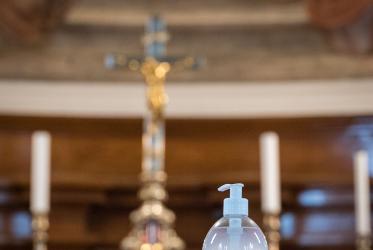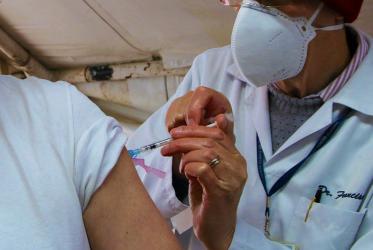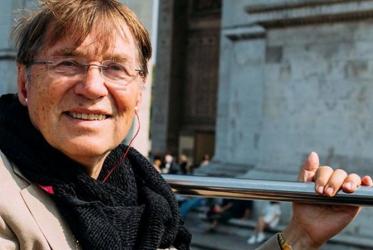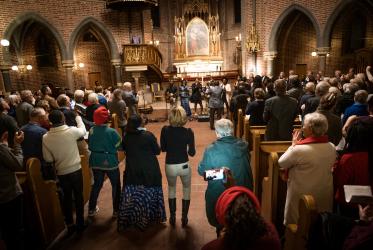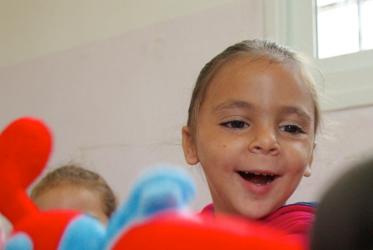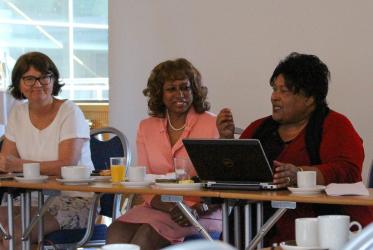Displaying 1 - 20 of 27
Retired Norway bishop risks jail over principles
05 December 2019
Oslo prays for peace, in week of Peace Prize ceremony
10 December 2018
“What really matters is our shared humanity”
14 August 2018
WCC general secretary speaks on religion and discrimination
14 February 2017
Churches in Norway and Pakistan break new ecumenical ground
26 January 2017
In Syria and Iraq, minorities must come out of the darkness
28 November 2016
New Executive Committee members elected in Trondheim
28 June 2016
Fleeing from – rather than to – a place
10 February 2016
